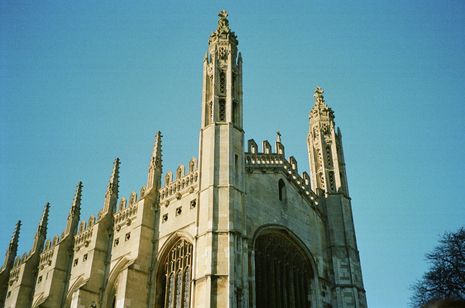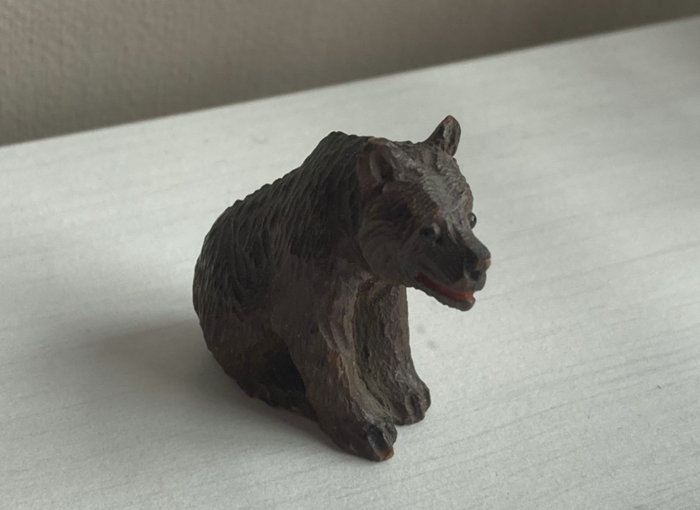‘Black-gowned and unaware’: Cambridge’s literary history in another light
Jamie Chong takes a stroll down Cambridge’s memory lane, looking at the ways in which the University has shaped and inspired some of the finest literary minds

Feet have strolled on King’s Parade, feet that belonged to the bodies of some of literature’s greatest minds, minds that have spent time studying at Cambridge in its centuries-long history. Sometimes there is a strange dissonance to think that I am in the same position in life as someone who went on to change the way we read and think. However, poring over their biographies, I’ve not only discovered how their experiences at Cambridge have influenced their writing but also found comfort where their lives draw parallels with what I have been going through myself.
“The best manipulators of language once suffered the same academic turmoil”
Stuck in the rut of a late-night essay crisis, I sometimes relate to a claim, apparently made by AE Housman in conversation, that Cambridge is an “asylum, in every sense of the term”. Surprising as it may seem, the best manipulators of language once suffered the same academic turmoil that students inevitably have to tackle now. Sylvia Plath’s prolific letter-writing and diary-keeping provide a rich insight into her experience as an English student at Newnham College. “It is Saturday afternoon and I have all the academic reading and papers to do which I should have done two days ago,” she records in her journal: a near-universal experience for humanities students. Just as fascinating, perhaps, is imagining Plath reading late at night for the Tragedy paper (an experience English students can still look forward to!) having “stayed up till two last night reading Macbeth. Which was fine.” It is inspiring to think that this same reading would later inform Plath’s poetry. From “The Colossus” to “Electra on Azalea Path”, Plath wove her academic work with her personal experiences, drawing from the intellectual to develop her confessional style.
If that isn’t exciting enough, Cambridge is, apparently, a place of romance! Trinity College is the setting of Lord Byron’s “violent, though pure, love and passion” for choirboy John Edleston, and the launch party of the 1956 zine St Botolph’s Review laid the foundation for the infamous relationship between Ted Hughes and Sylvia Plath (with similarly “violent” passion to Byron’s, as Hughes describes Plath leaving a “ring-moat of tooth marks” on his cheek). Plath eloquently paints a scene of youthful desire in her poem “Watercolour of Grantchester Meadows”, describing how “students stroll or sit, hands laced, in a moony indolence of love – black-gowned, but unaware”. This is a blissful ignorance I have yet to experience, but the romantic (or romanticised?) image captures the atmosphere of what it means to be developing, both personally and intellectually, in a place like Cambridge.
Cambridge doesn’t always feel like home for these writers, and their experiences have helped me through difficult moments in Michaelmas term. Wordsworth writes in The Prelude of his time at Cambridge, feeling he was “not for that hour, nor for that place”. Tennyson, similarly, struggled to fit into the Apostles while he was there and quit after failing to submit an essay on the subject of “Ghosts” – indeed, he reportedly tore it apart and threw it away. It’s normal to struggle with academics and fitting in. Sometimes it is better to do nothing than force yourself to socialise or work on a bad day, as Wordsworth did, when he “paced alone the level fields”. Grantchester Meadow – as captured in Plath’s poem – and Coe Fen, along with the many other picturesque corners of Cambridge, make for scenic places to contemplate your life choices.
Whether it’s spending way too much money as Byron did, or finding the friends you value for life, as Tennyson had in AH Hallam, Cambridge’s rich literary forebears have written to capture the experience we all live through. Despite this, I’ve yet to find any writers who’ve depicted the soul-destroying experience that is a bad club night, or the restorative pilgrimage to the Trailer of Life. Nevertheless, there are some things to look forward to in Lent term. As Plath describes, the coming spring will colour our college grounds “purple and gold with crocuses and white with snowdrops!”
 News / Cambridge postgrad re-elected as City councillor4 May 2024
News / Cambridge postgrad re-elected as City councillor4 May 2024 News / Gender attainment gap to be excluded from Cambridge access report3 May 2024
News / Gender attainment gap to be excluded from Cambridge access report3 May 2024 News / Some supervisors’ effective pay rate £3 below living wage, new report finds5 May 2024
News / Some supervisors’ effective pay rate £3 below living wage, new report finds5 May 2024 Comment / Accepting black people into Cambridge is not an act of discrimination3 May 2024
Comment / Accepting black people into Cambridge is not an act of discrimination3 May 2024 News / Academics call for Cambridge to drop investigation into ‘race realist’ fellow2 May 2024
News / Academics call for Cambridge to drop investigation into ‘race realist’ fellow2 May 2024




